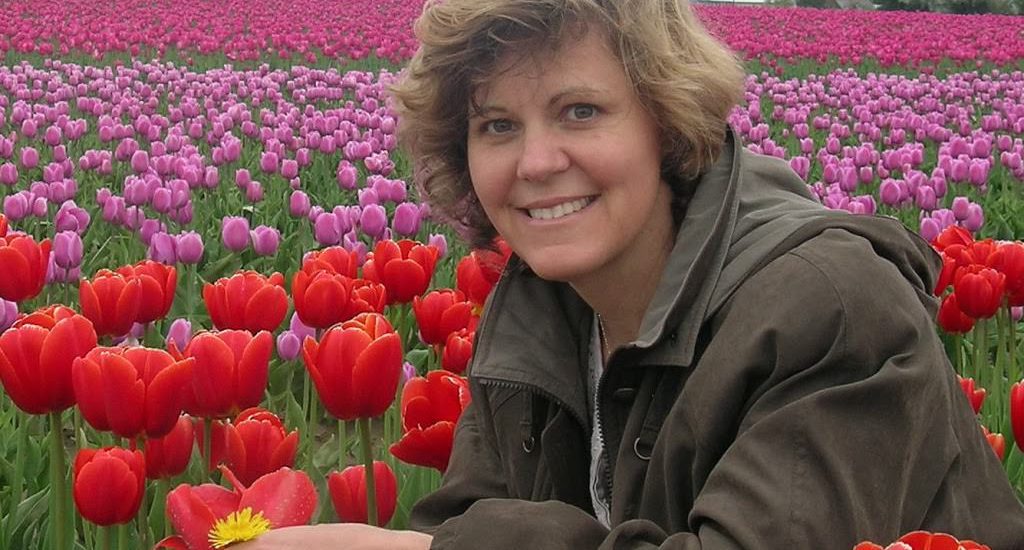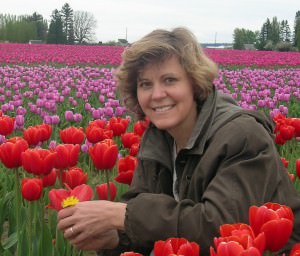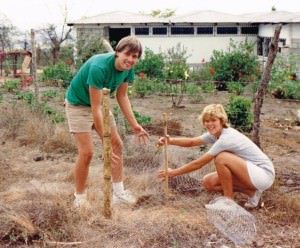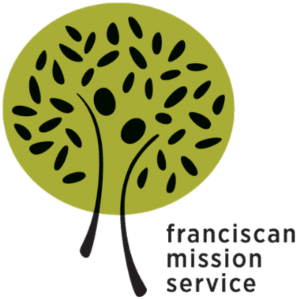Mission and Motherhood: Growing in God

 |
|
| Patty Sollmann, returned missioner and mother of three |
“I compare my mission experience to motherhood, and the impact that motherhood has on one’s life,” says Patty Sollmann, who served in Guatemala from 1992 to 1994 as part of FMS’ second lay mission class.
“Both have stretched me and challenged me to embrace God’s plan of transforming grace through love. Both have challenged me to grow in love, and in doing so, to never be left the same.
Both mission and motherhood have born the fruits of St. Francis’ words, ‘it is in giving that we receive.’ Both have helped me to shape me, and have helped me to sing a song of love to the Lord with my life. And both continually remind me that people matter infinitely more than things.
The main difference is that in mission you are giving birth to yourself, through God’s grace. Little has had as profound an impact on the deepening and stretching of my own Christian journey than my three years serving the poor in Guatemala.
From the first moment my husband Lorenz and I arrive in Guatemala, I began to be stretched: Learning a new language, adjusting to new foods that didn’t set well with my system, adapting to new and strange customs, and being challenged frequently to grow way beyond my comfort zone.
Those first nine months of mission could be compared to a gestation of sorts, with myself the one struggling for a rebirth within, struggling to ‘become,’ struggling to find my way and to grow and be shaped by my mission experience.
There was never a shortage of opportunities to bend, to address the uncertainty and strangeness, to confront my own cultural conditionings, and to be challenged by others and myself.
 |
| Lorenz and Patty Sollmann on mission in Guatemala, 1992-1994 |
Lorenz and I were self-driven, typically working 14-hour days, six days a week working on agro-ecology projects. We were part of a chicken cooperative that allowed people to raise broiler chickens to supplement their diet and income, as well as provide the village with a fresh supply of chicken.
One afternoon, we were making the rounds to check on all the cages with a mental list of many things to do when we thought we would just stop in quickly to see how the chickens were doing.
When we came to the home of Porphylia and Franesco and asked if we could check the chickens out back, Porphylia insisted we come in to visit. Both she and Francesco stopped what they were doing, pulled up a bench and dusted it off, offered us a drink and the hospitality of their undivided attention. With all the things we had to do, we didn’t know how we could afford the time to sit and chat, but they insisted, and we did not wish to refuse.
To us, our visit was about getting something done. To them, it was about being with someone for a while. It was lesson for us in priorities: Learning how to slow down and make time for truly and attentively ‘being’ with others, that mission of presence, not just a focus on ‘doing’ for others. It was about learning how to gauge what was truly needed at the time, which was not our knowledge of animal husbandry, but rather our love, attention, and friendship.
I have heard it said that one spells love ‘T-I-M-E.’ After 17 years of being a stay-at-home mom, and 12 years of homeschooling our three wonderful children, I think that’s about right. Porphylia and Francesco had it right. How this one simple moment on a warm, dusty Guatemala afternoon has stayed with me all these years!”
 |
| Patty’s huband Lorenz and their children: Josef, 13; Jehanna, 11; and Lea, 17. |
Patty and Lorenz, FMS’ first married couple, welcomed the birth of their first daughter Lea just two months after their return to the U.S. Their family currently resides in Washington and hopes to someday go on short term mission, perhaps to Guatemala.
Tagged in:

